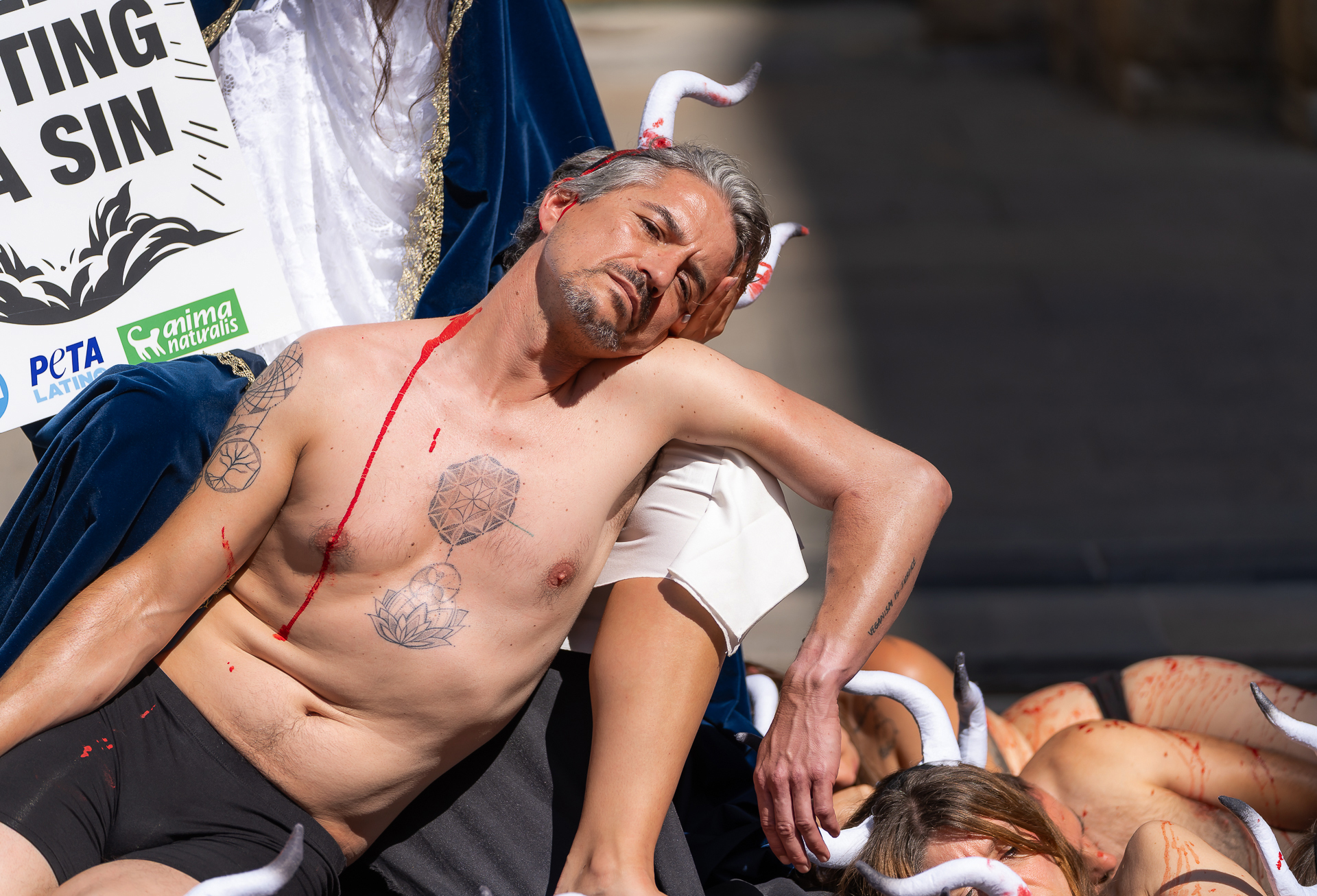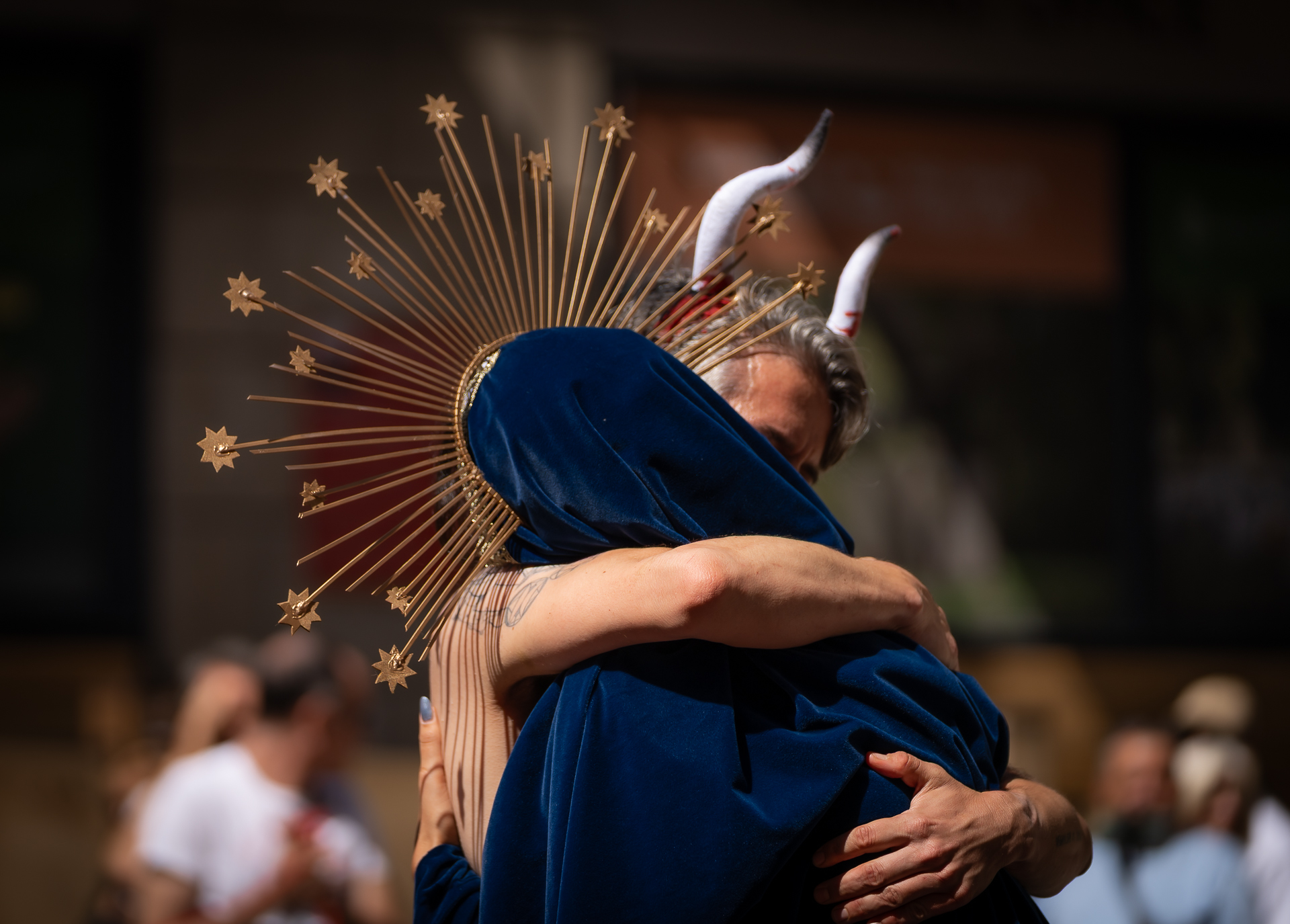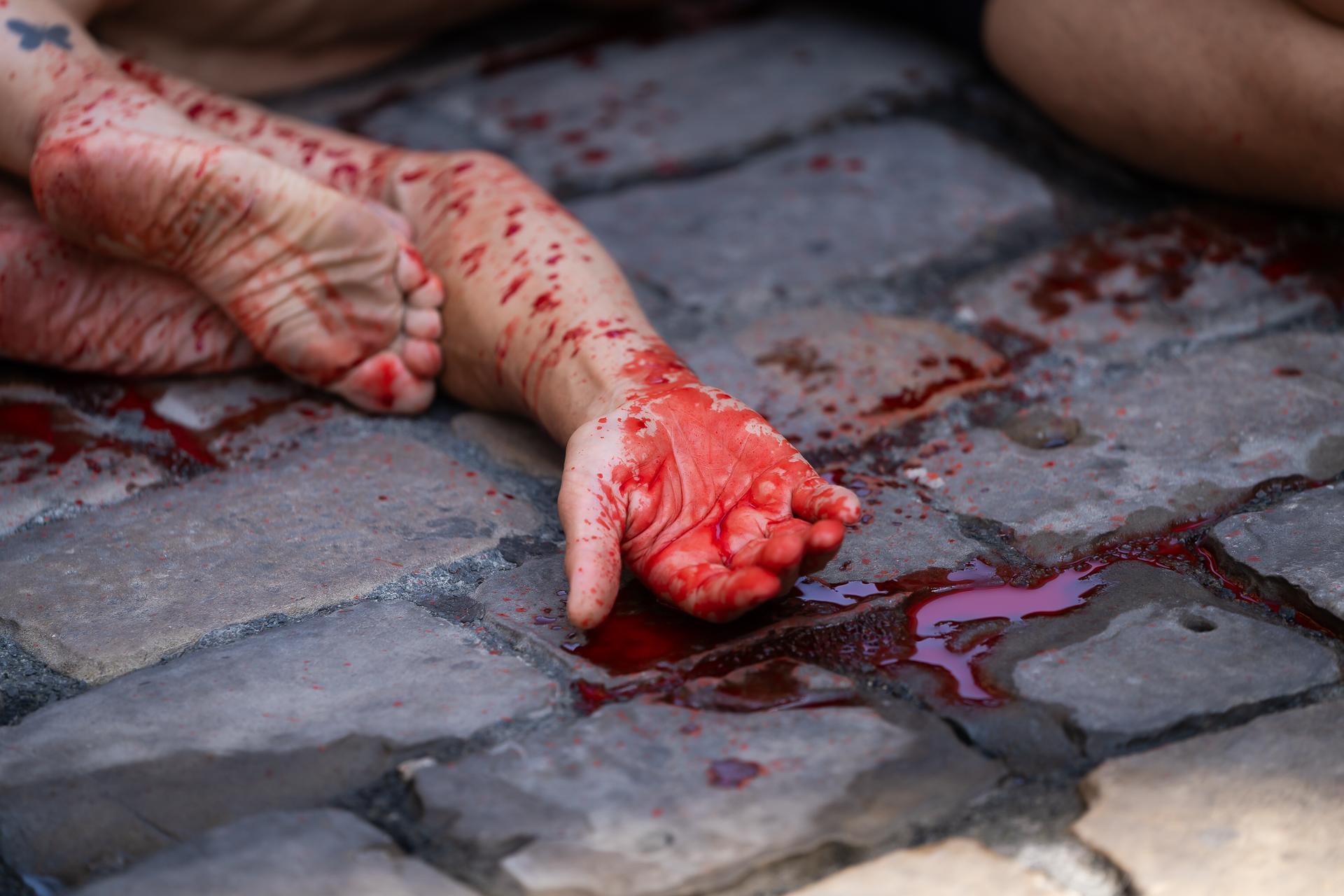Pamplona awoke deeply moved this Saturday by an image both symbolic and heart-wrenching: a woman portraying the Virgin Mary cradled an activist embodying a fallen bull in her arms, recreating Michelangelo's famous Pietà. Surrounding them, dozens of naked people with horns and blood-stained bodies formed a striking performance exposing the silenced pain behind the San Fermín festivities.
Organized by AnimaNaturalis and PETA under the slogan "Bullfighting is a Sin", the protest became one of the most powerful in recent years. It not only captured international media attention but also sparked an uncomfortable yet necessary debate about bullfighting's place in a society increasingly sensitive to animal suffering.

"Bullfighting isn't just a violent and outdated practice – it's a flagrant contradiction to the compassion and charity values supposedly embodied by the Casa de Misericordia (House of Mercy)", declared Aïda Gascón, Director of AnimaNaturalis in Spain. "It's unacceptable for a religious institution, founded on charity, to profit from animal torture when even historical papal bulls condemned it as barbarism".
The criticism is neither baseless nor merely symbolic. Pamplona's religious roots and those of its emblematic Casa de Misericordia – the charity foundation that organizes the running of the bulls and manages the bullring – make the paradox even more glaring: while helping vulnerable people, it perpetuates animal suffering for entertainment. "Declaring that Bullfighting is a Sin in the heart of Sanfermines isn't just an animal rights statement – it's a reminder of the ethical principles and compassion that should guide any institution, especially a religious one", emphasized Gascón.

The message also draws on history. In 1567, Pope Pius V explicitly condemned bullfighting in the papal bull De Salute Gregis Dominici, calling them "shameful spectacles fit for demons" and banning them under penalty of excommunication. Though later softened, the moral condemnation remains valid.
This year, the protest coincided with a citizen survey launched by Pamplona City Council where residents can voice opinions on bull-running and bullfights. A historic consultation reflecting a society no longer willing to ignore violence in tradition's name. "The City Council's survey is a historic opportunity for Pamplona's citizens to express their true feelings", highlighted Gascón. "It's time to build festivals free from animal abuse, where joy isn't based on suffering".
Social rejection of bullfighting is significant. According to the latest BBVA Foundation study (2025), 77% of Spaniards demand its abolition, with public approval dropping to 1.8 out of 10 – especially among youth. Spain's Ministry of Culture data shows marginal attendance: only 5.8% of citizens have ever attended a bullfight.

Despite this, Navarra continues allocating public funds to bullfighting events, like the €750,000 approved in 2020 to offset pandemic impacts on the industry, or multi-million contracts like Tafalla's for bullfighting events (2022-2023). "It's paradoxical to keep investing millions in public funds into a spectacle rejected by an overwhelming majority as cruel. We must stop wasting public money on this declining practice and listen to society", concluded Gascón.
Through a performance etched in collective memory and an increasingly clear ethical demand, AnimaNaturalis and PETA urge reimagining festivals that can evolve without losing identity – while gaining humanity. Because celebrating life cannot be built upon death.
Photographs by @ronaldinyo






